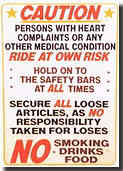Tuesday, April 26, 2011
Not the last typewriter
Last Typewriter Factory ClosesWhen I read that story last week I dutifully wrote a short blog post & filed it away until after Easter. There was a wave of nostalgic articles online; mine wasn't one of them.
It's an invention that revolutionised the way we work, becoming an essential piece of office equipment for the best part of a century.
But after years of sterling service, that bane for secretaries has reached the end of the line.
Godrej and Boyce - the last company left in the world that was still manufacturing typewriters - has shut down its production plant in Mumbai, India with just a few hundred machines left in stock.
Standing the test of time: The keyboard might not have changed in 100 years, but the typewriter itself has been superseded by the computer
Standing the test of time: The keyboard might not have changed in 100 years, but the typewriter itself has been superseded by the computer
Although typewriters became obsolete years ago in the west, they were still common in India - until recently. Demand for the machines has sunk in the last ten years as consumers switch to computers.
Swindell Corp., based in Jersey, reported yesterday that it had companies in China & elsewhere manufacturing typewriters, including a popular "contraband-proof" model with a clear plastic case for prison inmates.
I acknowledge the typewriter as one of the grandest, greatest inventions of all time.
My last typewriter was a heavy, clunky, non-working machine from the 1930's I bought at a rummage sale because it was cool & kept on a shelf. I got rid of it some time ago. When Smith-Corona introduced a word processing typewriter with a 20 line screen & "Data Disk" memory in the later '80s, essentially a small specialized computer, I snapped it up & never looked back. If, like the competing Brother word processors of the era, it had used the new 3.5 standard floppy disk. I might still have it as an emergency back up (I have a USB floppy drive). The S/C WP automatically reformatted pages & had spell check. No more tedious retyping just to correct one word or edit a sentence. No more carbon copies or wite-out. A first draft gradually evolved into a finished piece of writing, which seemed more naturally creative to me. I didn't miss the old typewriters for a minute. I created much of my best poetry & prose on that Smith-Corona, wrote dozens of short newspaper columns. I could pull up a piece of writing on screen, tinker with it, maybe print out a copy to pencil up away from the machine, & revise & refile it to removable disk. I kept a diary/journal on it, many hundreds of pages of generally dull, obsessive writing (although I also kept a portable notebook journal). When the S/C printed, it made the same satisfying click clack as a regular electric, but over twice-as-fast as I would be typing. & I could, if I wanted, still do real-time typing.
Now that I think of it, I never heard my sister - for years an ace legal assistant & law office manager who also knows steno, express any nostalgia for typewriters.
Only a few successful writers can afford to cling to their typewriters; they all have assistants.
Labels: about writing, in the news
Comments:
<< Home
"If a nation expects to be ignorant and free, in a state of civilization, it expects what never was and never will be." Thomas Jefferson
I have a 20 year-old Panasonic typewriter in my office that I use to make various forms look neater, as my handwriting is rather sloppy.
My son has become fascinated with my typewriter after reading Click Clack Cows that Moo in school.
Maybe typewriters will make a comeback among hipsters like vinyl records have done.
Post a Comment
My son has become fascinated with my typewriter after reading Click Clack Cows that Moo in school.
Maybe typewriters will make a comeback among hipsters like vinyl records have done.
<< Home















